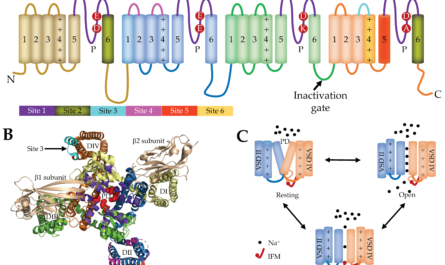In a groundbreaking study, researchers at the University of Bristol have discovered that an HIV drug could effectively prevent various types of coronaviruses, including the highly infectious SARS-CoV-2 variants. The findings, published in the journal Antiviral Research, highlight the potential of this drug in expanding the range of antiviral therapies available for combating current and future coronavirus outbreaks.
Coronaviruses pose a significant global public health risk, with several highly infectious species, including SARS-CoV-2, emerging over the past two decades. However, existing antiviral drugs for SARS-CoV-2, the virus that causes COVID-19, have limited effectiveness, and the virus can mutate, potentially rendering some treatments ineffective, such as monoclonal antibodies.
Previously, the research team at the University of Bristol had shown that a booster drug called cobicistat, commonly used to enhance the effects of anti-HIV drugs, demonstrated antiviral properties against a SARS-CoV-2 variant prevalent in Europe in early 2020.
In this latest study, the researchers aimed to determine whether cobicistat’s anti-SARS-CoV-2 properties persisted against the key variants of concern (VOCs) of the virus, as well as other coronaviruses, including Middle East respiratory syndrome coronavirus (MERS-CoV).
MERS-CoV is particularly concerning as it circulates in the Middle East, Africa, and South Asia and has a mortality rate exceeding 30%, with currently no specific treatments or vaccines available. The team also compared the effects of cobicistat to those of ritonavir, a structurally similar molecule found in Paxlovid, the current gold standard for SARS-CoV-2 antiviral treatment.
Using automated image analysis for screening and parallel comparison, the researchers discovered that both cobicistat and ritonavir exhibited an antiviral effect against all eight VOCs of SARS-CoV-2 that were tested, as well as other human coronaviruses, including MERS-CoV.
Interestingly, cobicistat demonstrated greater potency compared to ritonavir. Both drugs showed anti-coronavirus activity in vitro at tolerable dosages, albeit higher than those typically used for booster activity in HIV drugs and in Paxlovid. When administered at these higher dosages, cobicistat and ritonavir effectively inhibited coronavirus replication both individually and in combination with other drugs.
Dr. Iart Luca Shytaj, a lecturer in the school of cellular and molecular medicine and one of the corresponding authors of the study, emphasized the potential of cobicistat as an antiviral drug. He stated, “Our results indicate that cobicistat, at dosages above its typical clinical use as a booster, could become an effective antiviral drug both on its own and in combination with other antivirals and lead to more potent treatments than currently available options.”
While further research involving animal and clinical studies is necessary to validate these findings, the potential implications are significant. The results could contribute to expanding the arsenal of antiviral drugs available to combat current and future coronavirus outbreaks, ultimately reducing their impact on global public health.
Moving forward, the research team plans to test high-dose cobicistat in combination with the other component of Paxlovid, nirmatrelvir, as a potential treatment against MERS-CoV infection. These ongoing efforts will bring us one step closer to more effective and comprehensive strategies for managing coronaviruses and preventing their devastating consequences.
*Note:
1. Source: Coherent Market Insights, Public sources, Desk research
2. We have leveraged AI tools to mine information and compile it



